Guinea pigs are known to be sweet and docile. They’re quite intelligent and curious animals who enjoy exploring their surroundings, your body, their own body, and any trinket they can get their hands on.
However, they require attention, time, and friends in order to feel happy. Otherwise, it might get depressing.
So, can a guinea pig live alone? A guinea pig should not be alone. Guinea pigs are herd animals, which means they thrive most in groups. If an owner can’t handle an entire herd, then a pair of guinea pigs are always happier and healthier than a single, lonely piggy.
To live a long and healthy life, guinea pigs depend on being around others of their species. Based on Cornell University research, social animals, ranging from ants to humans, die faster when experiencing loneliness, even more so in cases of sudden isolation.
Companionship has multiple benefits for furry beings, but its also a necessity. A single human guinea pig feels the same way that any person would feel if they spent their entire life alone. Read on to learn more.
Table of Content
Signs of Stress in Guinea Pigs
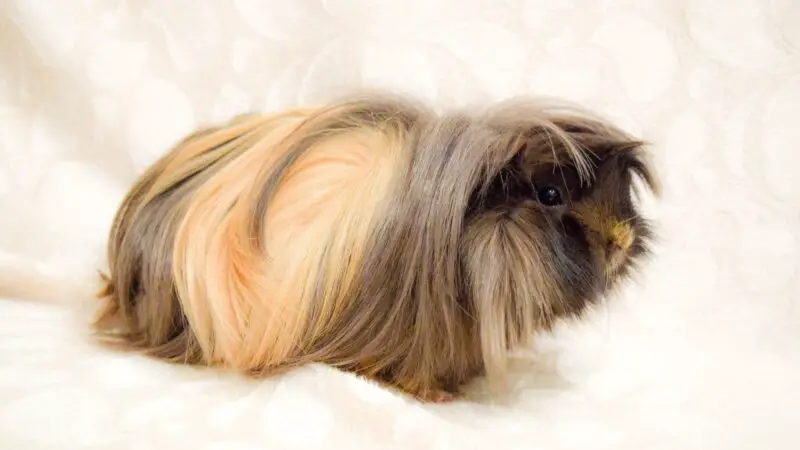
Social animals, like humans and guinea pigs, need to interact with others of their kind in order to be healthy. Loneliness is a serious cause of stress and depression. Stress and depression will weaken the immune system, leading to disease and infection.
Unhealthy signs of stress you need to pay attention to are:
- Circling
- Aggressive behavior
- High-pitched squeaking
- Remaining motionless (freezing) for long periods of time
Anxiety also affects the piggies’ physiology without necessarily making them sick. Weight loss, diarrhea, and excessive water drinking could be a side effects of loneliness, but they could also signify an underlying illness.
It’s very important to take a piggy to a veterinarian if it exhibits any of these symptoms. If it turns out healthy, then it needs a companion more than ever.
Guinea Pigs Are Healthier When They Have Friends
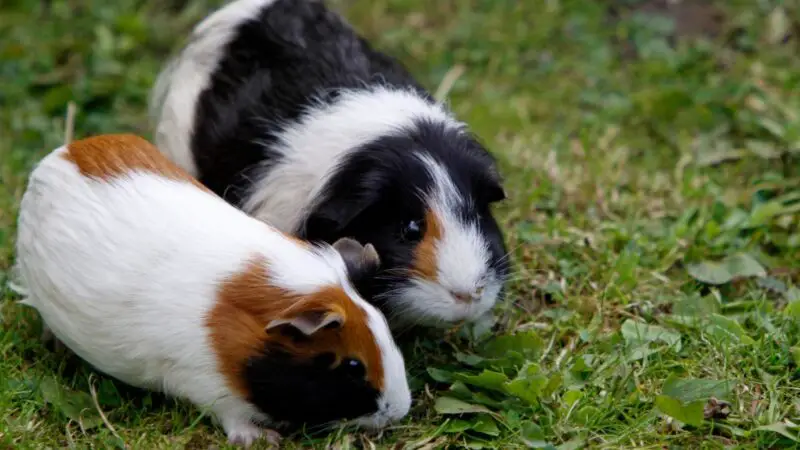
Guinea pigs are non-aggressive prey animals. Therefore, they don’t usually fight attackers, but rather attempt to freeze in place, hoping that they’ll go unnoticed. If that doesn’t work, they try fleeing.
Only in dire face-to-face situations do they try to defend themselves by biting and scratching. Consequently, piggies spend most of the daytime hiding and are most active at twilight.
Because they’re small and relatively weak animals, they rely on the safety in numbers concept and feel more secure in pairs or groups.
Introductions to Other Guinea Pigs
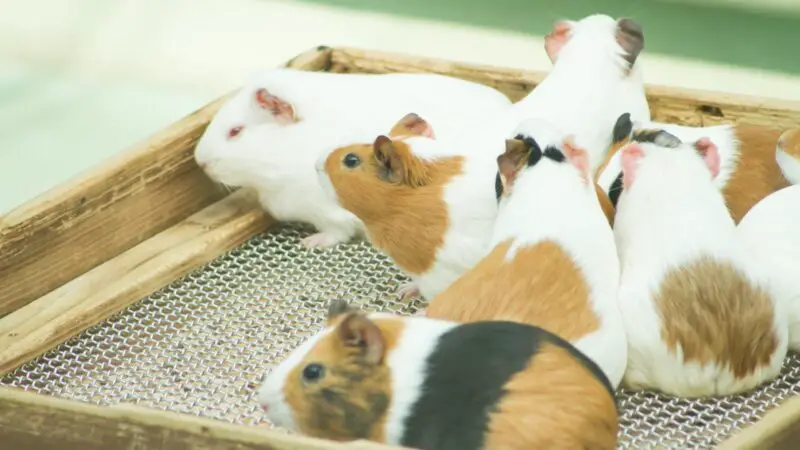
Because guinea pigs are prey animals, they react badly to unexpected change. That’s why introducing two piggies is a long process that requires attention and patience.
First of all, it’s vital to make sure that the new guinea pig is healthy. Pet shops may sell a sick one because bacterial infections with weak symptoms often go unnoticed.
Every piggy living with a sick piggy also gets infected. Therefore, it’s essential to quarantine the new one for two to three weeks in a separate cage and take it to the vet before introducing it to any other guinea pig.
The cages should be positioned in a way that the piggies can’t see each other but can smell and hear each other. Suddenly putting two unacquainted guinea pigs together will stress them out, as they can be quite territorial.
Once the quarantine period is over, the two guinea pigs should be introduced on neutral grounds. The right place is enclosed, simple, and one that neither of them has been to.
A good way to distract them from fighting is by placing hay, fruits, and vegetables between them. If they don’t fight for two hours, they can be put together in a newly reorganized cage. In case they do start fighting, separate them immediately and delay the introduction to another time.
Before placing a new piggy in a cage with one or more guinea pigs, do these three things:
- Make sure that the cage is the right size, at least 0.7 square meters (7.5 square feet) for two piggies; or 1.2 square meters (13 square feet) for three or more.
- Wash and arrange the cage differently so that it feels new to both piggies.
- Rub hay on the new piggy to make it smell more like the herd.
What to Do if Guinea Pigs Are Fighting?
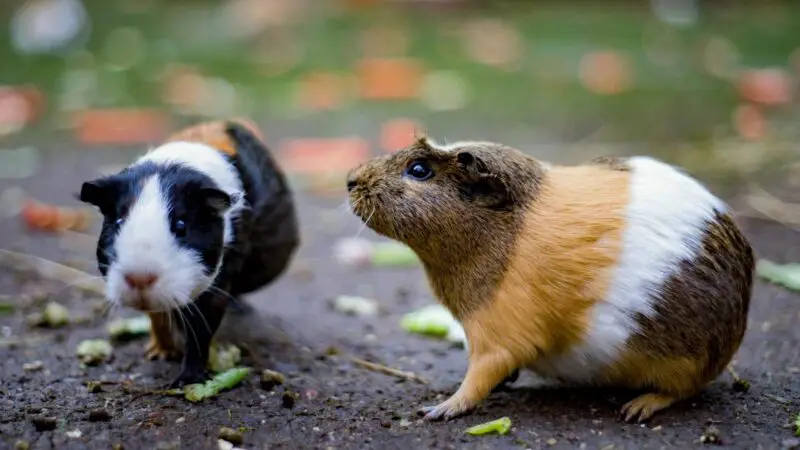
The first step is to identify the type of clash. There is a fine line between asserting dominance and fighting. The line is crossed when relatively harmless circling and hissing turns into biting, lunging, and mounting.
If they’re fighting, the next step would be putting on thick gloves or using a towel to take the aggressor. If that’s too difficult, put a piece of cardboard between them and then grab one of them.
Next, they must be separated and kept in different cages with proper conditions (large, clean, with toys) and in separate rooms for a night. Notice obvious signs of trauma, such as wounds, infections, or abnormal eating and drinking habits.
They may be reintroduced after one night, but very carefully as the situation is prone to escalating. The piggies must be under close supervision during the following days, with special attention to signs of a new clash coming on. If the issues continue, it’s recommended to take the aggressor to a veterinarian.
How to Pair Guinea Pigs?
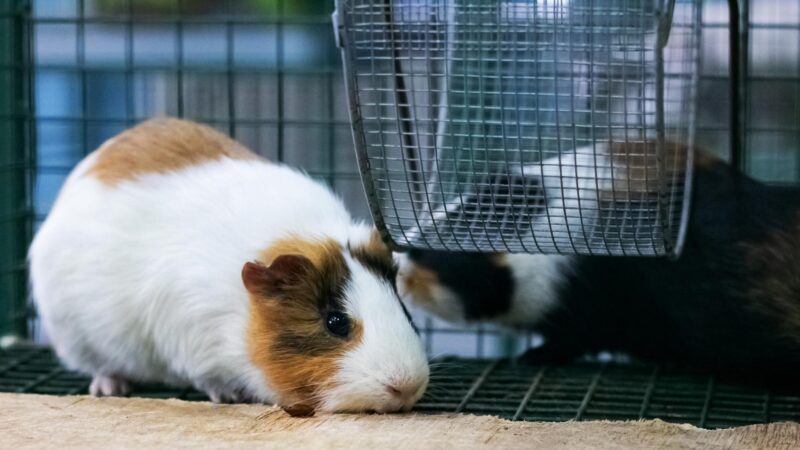
Proper pairing is vital in order to avoid fighting and unwanted breeding. Although aggression in guinea pigs is rare, there are only so many suitable combinations for them. The first thing to do checking the gender, as many pet stores are mistaken when making a determination.
An owner should examine a guinea pig’s genitals on a low surface so that it doesn’t fall and injure itself. Piggies are fragile and should be handled firmly but gently, with support to the chest and shoulders.
Pairing Sows and Boars Guinea Pigs
There are several differences between sows (female) and boars (male). A group composed of one castrated male and multiple females closely mimics a herd in the wild and exhibits the guinea pigs’ natural behaviors.
Two sows will almost always get along, especially if they’ve been together since a young age. There is a slight risk that they might start fighting, especially when they’re maturing (3-5 months). But, they usually calm down as they age.
When it comes to boars, there are a few rules that ensure peace. When boars start living together, they often battle for dominance by circling, shaking, and teeth-baring. Usually, at some point one of the piggies will back down and end the fight.
One of the main triggers of aggression is testosterone. Boars often experience hormonal spikes before they reach adulthood, especially during the following periods:
- Four months – When the testicles descend
- Six months – Extremely high testosterone levels
- Eight to ten months
- Twelve months (occasionally)
It’s best if the boars are brought up together, best if one of them is older and dominant. Either way, the adoptee must make sure that the piggies like each other and have sufficient cage space.
Neutering of Guinea Pigs
Spaying and castrating, or neutering is the removal of reproductive organs with surgery. Despite having multiple benefits, the process isn’t known to significantly reduce aggression in guinea pigs.
While it doesn’t stop boars from fighting, it does allow a single one to live happily among sows. More importantly, neutering all guinea pigs in a group completely depletes the risk of unwanted pregnancies.
Lastly, neutering reduces the risk of health complications. Spaying females will eliminate their chances of developing:
- Uterine cancer
- Mammary cancer
- Ovarian cysts
- Other cancers of the reproductive organs
- Obesity
Neutering males will eliminate their chances of developing:
- Prostate cancer
- Mammary cancer
- Rectal muscle atrophy that requires daily colon cleaning
- Sickened skin glands that will secrete a sticky substance
Does Guinea Pigs Die in Loneliness?
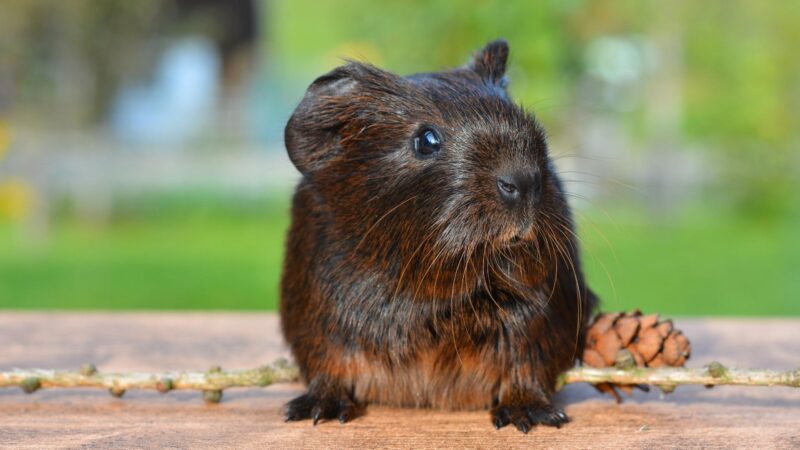
A guinea pig should not be left alone. It won’t die of loneliness, but it will be unhappy and stressed. An emotionally turmoiled guinea pig has a weak immune system, making it prone to infections and health complications. Unfortunately, a guinea pig can unexpectedly die.
If one of the herd dies, the piggies collectively overcome their sadness and go on with their lives, so it’s not necessary to replace the dead one. Guinea pigs suffer a lot when a friend dies, especially if they were only two, to begin with. A grieving piggy should never be left without a companion.
Taking care of an entire herd is better than just a pair, especially because piggies, as prey animals, rely on each other for safety.
Summary
Guinea pigs are non-aggressive, lovable, social animals that need and deserve a playmate. They should not live alone. Loneliness can lead to depression and stress to guinea pigs and eventually, death. Thus, It is always preferable to start with a couple of guinea pigs.
